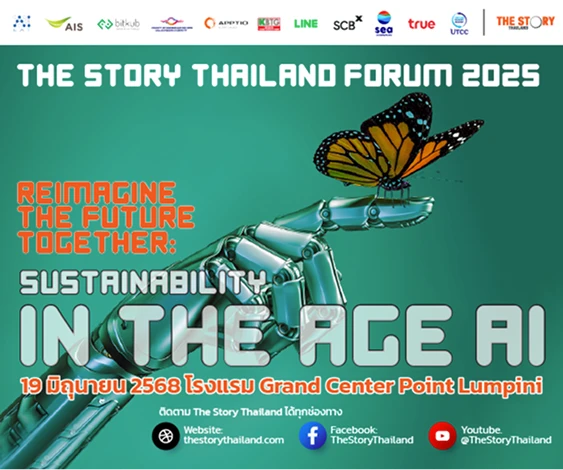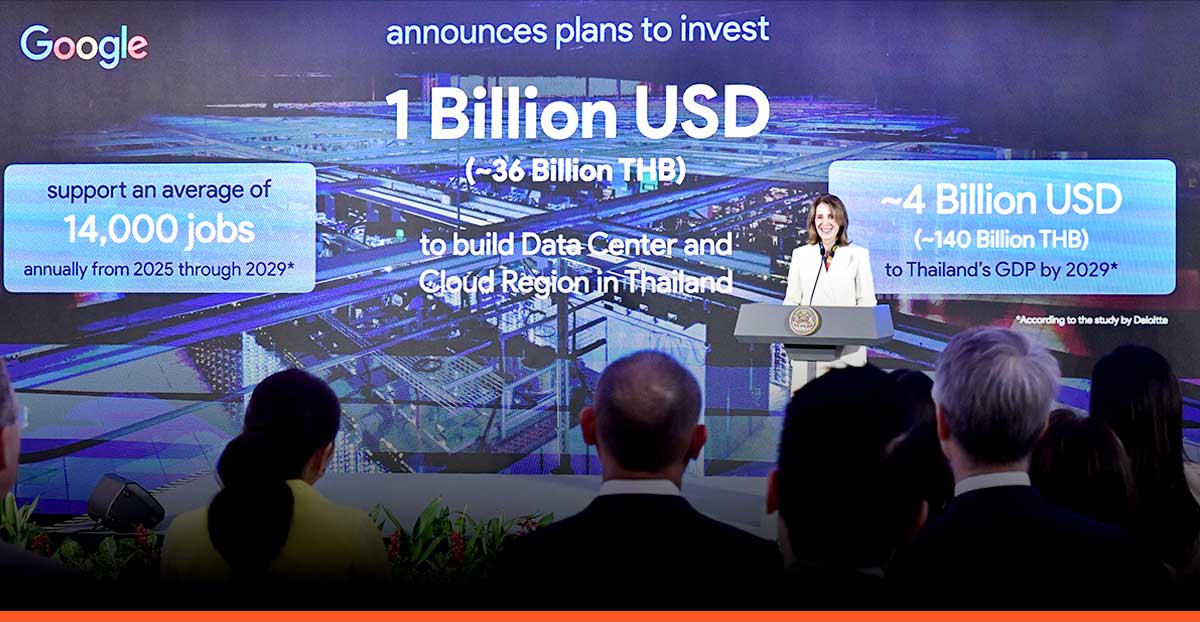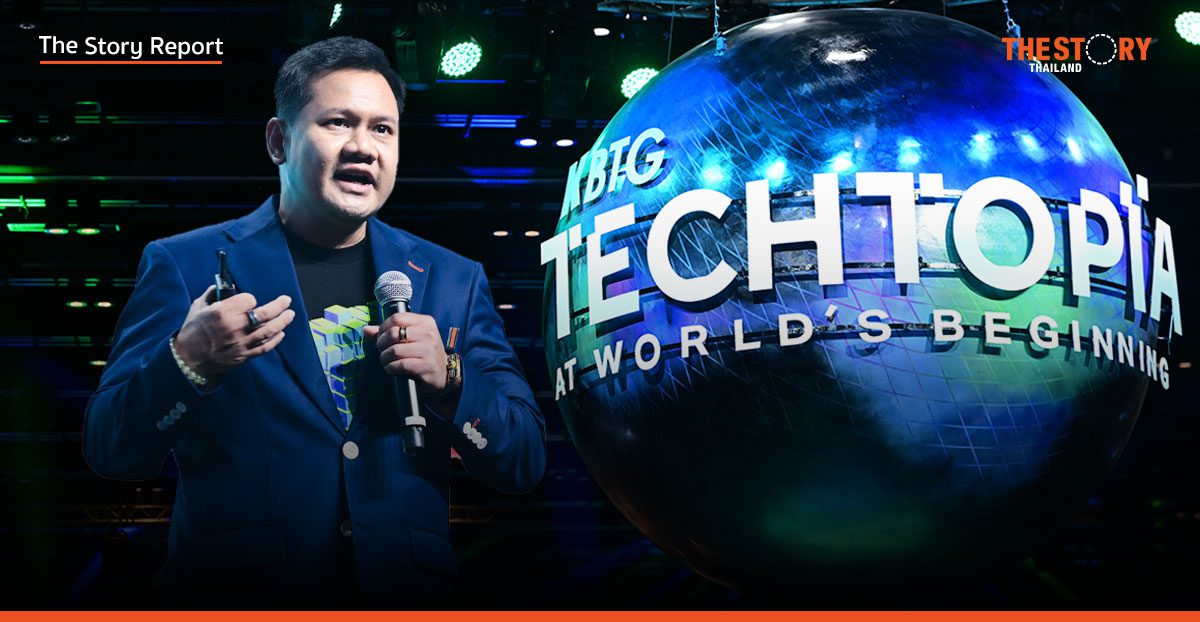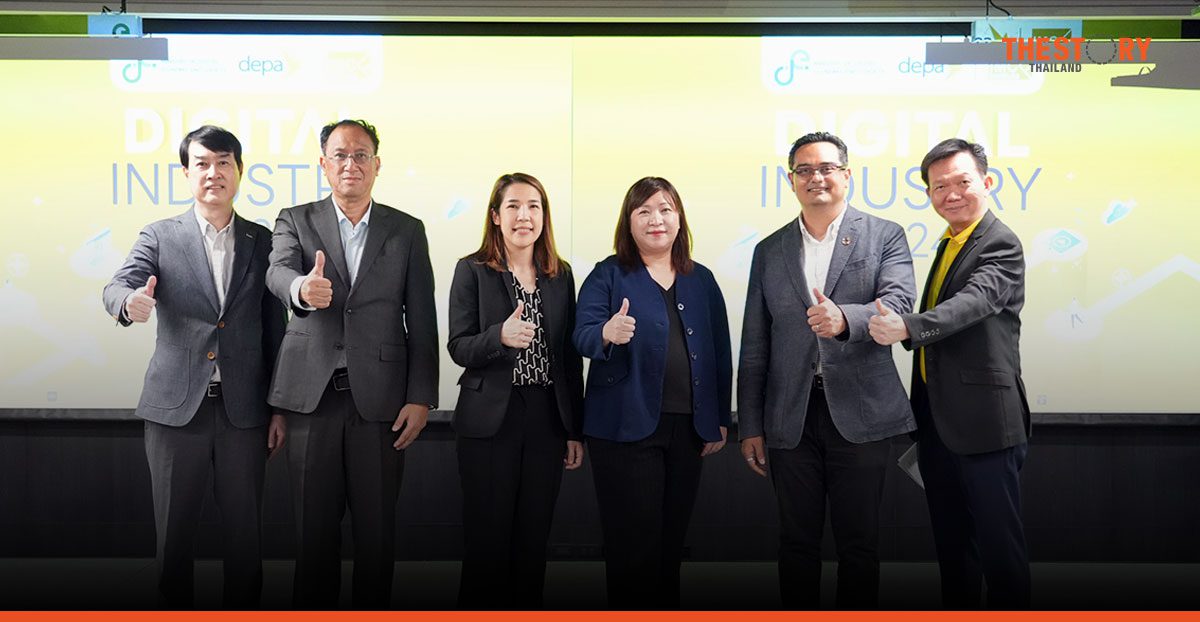Google announced a plan to invest US$1 billion (~36 billion baht) to expand cloud and data center infrastructure in the country. This announcement demonstrates shared progress towards our agreement with the Royal Thai Government in November 2023. This agreement includes establishing digital infrastructure, supporting responsible AI adoption, advancing cloud-first policies, and making digital skills more accessible in Thailand.
Today marks a major milestone in Google’s ongoing commitment to ‘Leave No Thai Behind’ and help Thailand thrive in the AI economy.
Investing in digital infrastructure to empower users and businesses in Thailand
Jackie Wang, Country Director, Google Thailand said that the first data center in Thailand, which will be located in Chonburi, will help meet the growing demand for Google Cloud, AI innovations, and the company’s popular digital services such as Google Search, Google Maps, and Google Workspace that organizations and people in Thailand, as well as billions of people around the world use every day.
In August 2022, Google Cloud announced a plan to bring its first cloud region to Thailand. When it launches, the Thailand cloud region, which will be located in Bangkok, will make it easier and faster for public sector organizations, small businesses, start-ups and large enterprises to benefit from Google Cloud’s on-demand compute and AI/ML resources. It will deliver high-performance and low-latency services, offering customers key controls that allow them to maintain the highest security, data residency, and compliance standards, including specific data storage requirements.
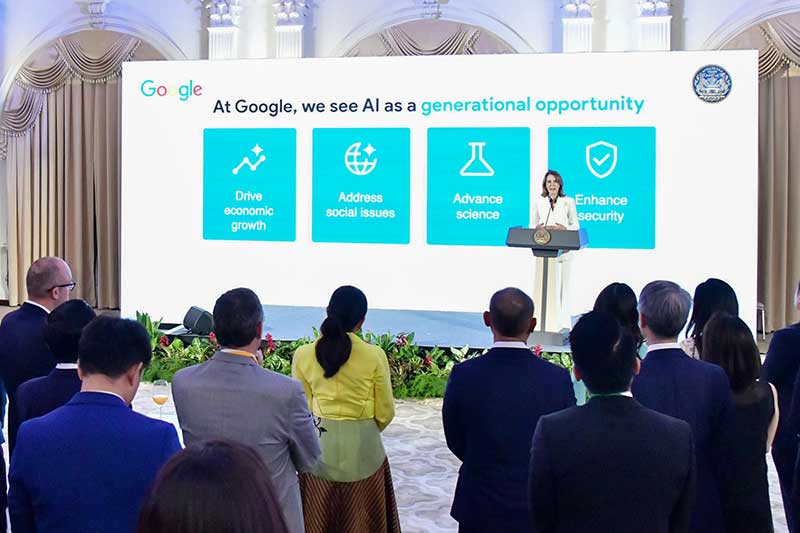
Commenting on today’s announcement, Paetongtarn Shinawatra, Prime Minister of Thailand, said that “Thailand is fast becoming a digital hub in Southeast Asia, propelled by a talented workforce and investments in technology infrastructure from industry leaders like Google. The Royal Thai Government deeply appreciates Google’s ongoing partnership to strengthen our digital economy, particularly its efforts in the past five years to train millions of Thais in critical digital skills, and its latest plans to equip even more citizens with the tools and knowledge needed for the jobs of tomorrow.
Google’s investment in its data center and cloud region in Chonburi and Bangkok, respectively, coupled with growing Thai expertise in cloud computing and AI, are perfectly aligned with our national Cloud First Policy. This synergy will accelerate the development of innovative digital services and in turn unlock economic opportunities and enhance the quality of life for all Thais.”

This investment underscores our strong partnership with the Thai government, aligning with the nation’s Cloud-First Policy. Ruth Porat, President and Chief Investment Officer of Alphabet and Google, said that Google’s infrastructure investments in Thailand represent a major milestone in commitment to expanding opportunities for Thais in the digital age. These investments will empower Thai businesses, innovators, and communities to harness the power of cloud and AI technology. Google’s commitment to making digital skills accessible to all helps drive economic growth and create a more inclusive and prosperous digital future for people and organizations across Thailand.
Helping Thailand thrive in the AI economy
Thailand has great potential with its digital economy. According to our e-Conomy SEA 2023 report, Thailand’s digital economy remains the second-largest in Southeast Asia and is projected to reach ~US$50 billion in 2025. A research by Access Partnership also reveals that the successful adoption of AI can assist Thailand in developing a robust digital economy, unlocking at least THB 2.6 trillion in economic benefits for businesses in 2030.
It believe that a strong foundation laid today can set up years of success and level up the playing field for the country. The US$1 billion investment in world-class technical infrastructure announced today has the potential to add US$4 billion to Thailand’s GDP by 2029 and support an average of 14,000 jobs annually from 2025 through 2029, according to a study by Deloitte.
Fostering Al literacy to help unlock opportunities for Thais
This investment is not just about infrastructure; it’s also about unlocking new possibilities for businesses, educators, and every Thai. As AI continues to reshape various industries, equipping Thais with the knowledge and skills to use this technology is paramount. Over the past five years, we have trained more than 3.6 million Thais, including students, educators, SMEs, and developers, underscoring our commitment to making digital skills accessible to all.
The digital skilling programs like Samart Skills and online courses, including a new AI Essentials curriculum, are equipping learners with key skills and knowledge around AI tools and their applications. In addition, Gemini Academy, an AI skilling program designed to help teachers use AI safely and elevate their creativity and productivity, has trained 20,000 Thai educators since 2023. To further support Thailand through its digital transformation, we also plan to invest and support AI skills in the country through local organizations to empower 150,000 Thais by 2026.
Improving representation of Thai language in LLMs
We continue our efforts with Project SEALD (Southeast Asian Languages in One Network Data), a joint collaboration with AI Singapore, Singapore’s national research and innovation program, which is committed to making AI more inclusive and effective for Southeast Asia. Advancing understanding of global languages is critical to bridging the digital divide. To ensure that advancements in AI are equitable from the outset, Google is collaborating with local Thai partners to open-source Thai language datasets to train large language models. This work will enable the development of more robust and culturally representative language models for the region.
“We are excited about Thailand’s digital future and believe that AI can play a crucial role in its journey. By investing in digital infrastructure and AI skills, Thailand can unlock the full potential of this transformative technology to create a more innovative, inclusive, and prosperous nation. We will continue to work with the Thai government and local partners to achieve these goals.”

